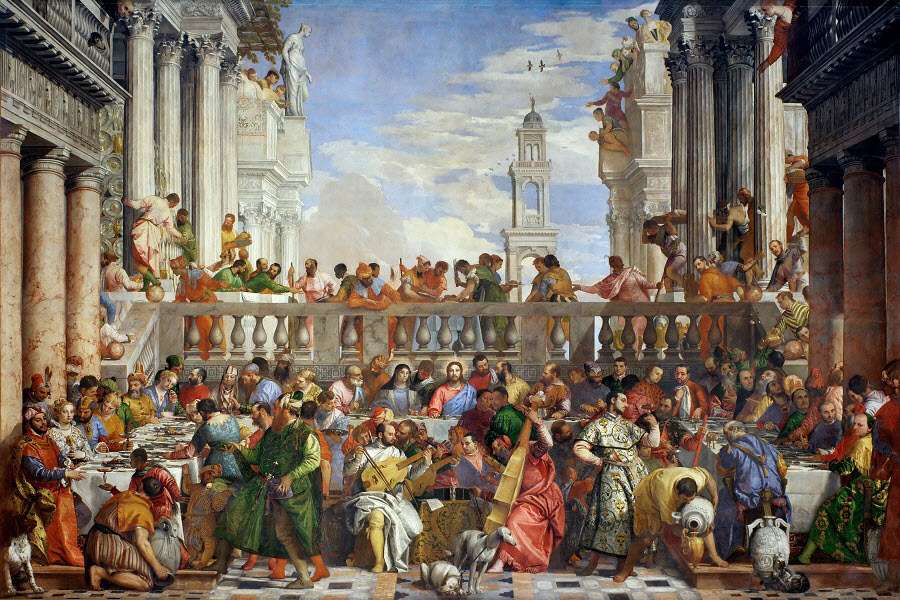
The Wedding Feast at Cana
01-20-2019Weekly ReflectionFr. Julius KundiToday’s gospel sees Jesus begin his mission. Now, for the first time, Jesus can go public, and we begin to discover the power of God at the wedding feast at Cana. AT this wedding, Mary, the mother of Jesus was invited, as well as Jesus himself and his disciples. As the wedding feast went on, the wine ran out. Mary went out of her way to intercede with Jesus and Jesus performed what John tells us was His very first miracle.
Many Scripture scholars have considered the following question probably for curiosity sake or for probably to provoke our faith. That if this was Jesus’ very first miracle, how then did Mary know that Jesus could do it? Good mothers know their children. They know the hidden talents and potentialities of their children. There are many young men and women who have gone on to accomplish great things in life because their mothers believed in them and encouraged them. So did Mary know her son then was a wonder worker?
Again, if Mary knew this how comes she never asked him to multiply her bread, turn the water on the dining table into wine, or double her money to make ends meet? How come she never asked Jesus to use his miraculous power to help her out but she was quick to ask him to use it and help others? Think of it. If you have a child who has a miraculous power to double money for other kids at school, won’t you ask him to double yours at home too? After all, one would argue, charity begins at home. But for Mary and for Jesus the needs of others come first. Could that be the message then about this story, others first?
Whatever may be the reason for Mary's actions, we need to understand that this event in the gospel of today is much more than just bailing some friends out of a problem. It gives us a close-up of Jesus at work; the proof that the Messiah is in our midst and he is Jesus the Son of Mary.
Jesus himself knew he had this power to enhance the lives of others. After his forty days fast in the desert, he was hungry and the devil suggested it to him to turn some stones into bread for his own use, but he did not do it. Yet he later multiplied bread for crowds of his hungry followers to eat. What does the Cana miracle tell us? Is it that God’s special gifts are not meant primarily for our personal benefit but for the service of others? The answer to this is yes, and St Paul confirms this when he lists examples of different gifts of the Holy Spirit and adds that “to each person is given the manifestation of the Spirit for the common good.”
Indeed we all have situations in our lives that are just as serious as the one facing the bride and groom at Cana. It is quite possible, actually, that the young couple at Cana may not have been aware of their predicament until they heard what Jesus had done. In our case, however, we must surely be conscious of situations in our lives where we are acutely aware of our own powerlessness, and our inability to manage things. In human language, this is negative and problematic, but in the designs of God, it contains the possibility of a miracle, with an opportunity to get a close-up view of the Lord’s care in our lives. Indeed great things happen when God is involved in any human situation. Problems and struggles are part of life, and of living. But God would wish to be involved in all that we do. He wants to walk every step of the way with us. The wedding at Cana was a public celebration of love, and, where there is love, there is God, and St. John reveals that they who live in love, live in God, and God lives in them.
Indeed, great in our midst is the Holy One of Israel! May God increase our faith in His only begotten Son, Jesus the Redeemer.
Fr. Julius
BACK TO LIST